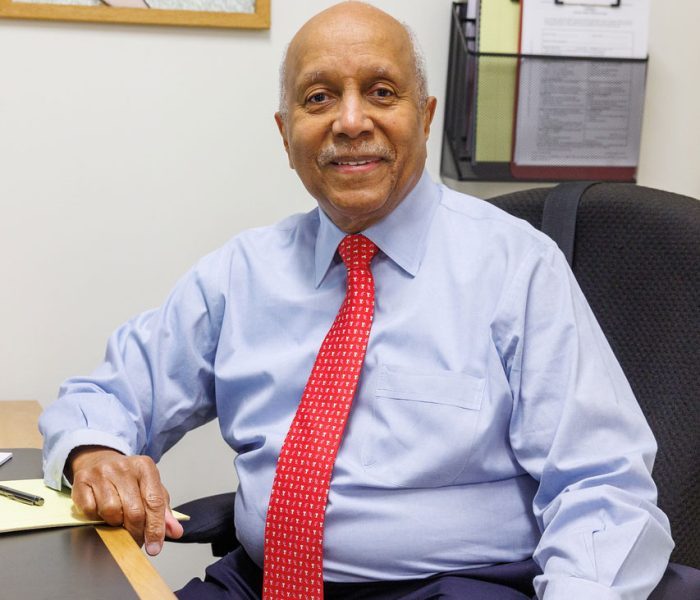Dr. James Cornish is a board-certified psychiatrist that specializes in addiction treatment. His caring and compassionate nature makes him a wonderful asset to the executive team at Livengrin Foundation, Inc. Dr. Cornish strives to stay informed on all aspects of psychiatry and addiction treatment to ensure every patient he treats receives the best care.

Sanul Corrielus
CEO, Corrielus Cardiology

Dr. Sanul Corrielus is a dedicated health care professional with a passion for improving lives through compassionate care. With years of experience, he has a strong background in cardiology, striving to make a positive impact on patients’ well-being. Dr. Sanul Corrielus believes in the power of innovation and teamwork to drive health care excellence, and he is committed to staying at the forefront of medical advancements.
What’s your favorite thing about working in health care?
I find immense fulfillment in working in health care due to the opportunity to positively impact people’s lives. The ability to provide comfort, healing, and support during times of vulnerability is deeply rewarding. Collaborating with a diverse team of professionals and witnessing the resilience of patients is a constant source of inspiration, making each day in health care a meaningful journey towards better health and well-being.
What are the biggest issues facing the health care system in Philadelphia?
Philadelphia’s health care system faces multifaceted challenges, including health care disparities, access to quality care, and the high cost of medical services. The city grapples with addressing the needs of underserved communities while maintaining financial sustainability for healthcare institutions. Additionally, the opioid epidemic and mental health crisis demand urgent attention. Balancing these complex issues with limited resources remains a significant hurdle, necessitating innovative solutions and community-wide collaboration.
What does the future of health care in Philadelphia look like to you?
The future of health care in Philadelphia holds promise with a focus on inclusivity and accessibility. I envision a health care landscape where equitable access to care is a reality for all residents, irrespective of their background. Technology-driven solutions, telemedicine, and community health initiatives will play pivotal roles in transforming health care delivery. By addressing social determinants of health and fostering collaboration between stakeholders, Philadelphia can pave the way for a healthier, more vibrant future.
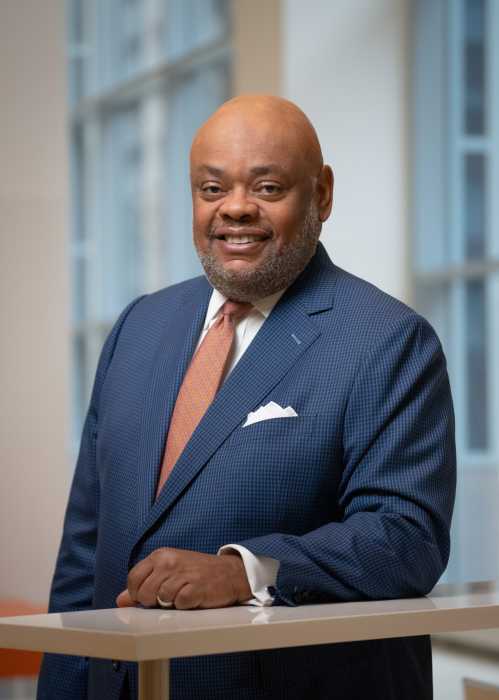
Gregory E. Deavens
President and CEO, Independence Health Group

Gregory E. Deavens is president and CEO of Independence Health Group, one of the nation’s leading health insurers. Under his leadership, Independence is advancing equitable, whole-person health, including integrating physical and behavioral health and reducing racial and economic health disparities. Mr. Deavens has been named to Savoy magazine’s Most Influential Black Executives in Corporate America and Modern Healthcare’s 100 Most Influential People in Healthcare.
What’s your favorite thing about working in health care?
A career in health care provides the opportunity to deliver a meaningful impact on the quality of people’s lives. At Independence, we are fiercely committed to our mission of enhancing the health and wellbeing of the communities we serve. That includes addressing both physical and mental wellbeing. We work relentlessly on behalf of our members to improve health care access, equity, quality, and affordability.
What are the biggest issues facing the health care system in Philadelphia?
We must reduce disparities in health care, including racial and gender-based, to ensure everyone has an equal opportunity for a healthy life. This requires understanding and addressing the social determinants of health, including economic stability, educational opportunities, access to nutrition, and improved physical environments. In parallel, we must identify ways to simplify health care for consumers and increase opportunities for engagement.
What does the future of health care in Philadelphia look like to you?
We are fortunate to live in a region with tremendous talent and resources in health care. We can expect continued innovation in health care delivery, with more care moving to outpatient settings and ultimately the home, supported by technology. Increasingly, patient-centric models driven by data and analytics are creating opportunities for new payment models that will ultimately improve affordability and outcomes.
Constance DiAngelo
Chief Medical Examiner, Philadelphia Department of Public Health
Dr. Constance DiAngelo was appointed as the city’s new chief medical examiner in October 2022. Dr. DiAngelo is a board-certified anatomic, clinical, and forensic pathologist with over 20 years of experience in determining cause and manner of death. She has personally performed autopsies or reviewed findings in thousands of routine and complex natural and injury cases including complex homicides and infant and child cases. Dr. DiAngelo has taught forensic pathology and medicolegal death investigation in classrooms, in autopsy rooms, and at crime scenes.
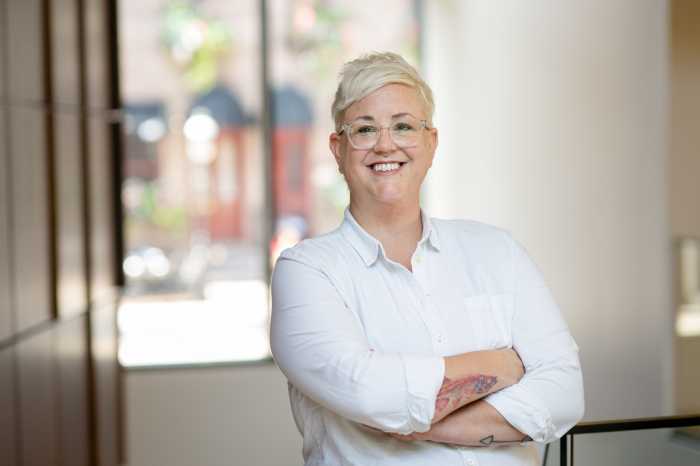
Erica Dixon
Director, Accelerate Health Equity

Erica Dixon, PhD, is the director for Accelerate Health Equity, a city-wide initiative addressing health equity and racism and advancing the health of Black Philadelphians. AHE builds on a large number of equity-focused efforts ongoing in the city and brings together a diverse group of key stakeholders representing health systems, payors, and community organizations to work collaboratively to improve health outcomes. Dixon has a PhD in Behavior, Cognition, and Neuroscience from American University.
What’s your favorite thing about working in health care?
The ability to make change and have a real impact on people’s health — all of the work we do is aimed at making Philly healthier and more equitable, whether through direct patient impact, supporting organizations in expanding their work, or helping shape the future of health care in Philly. We want to make an impact at a system level, but the work we do at an individual level is also very important to me.
What are the biggest issues facing the health care system in Philadelphia?
Access to care is a huge issue — there are a lot of people who aren’t able to be seen when they need to be seen, particularly in specialty care. There’s a lot driving that, including type of insurance (or lack of coverage), cost of care, availability of providers by neighborhood or specialty area, and mistrust of the medical system — if a patient has had negative experiences, that can lead to decreased care seeking.
What does the future of health care in Philadelphia look like to you?
The future of health care in Philly centers patients and communities, particularly communities of color who have long been underserved; focuses on equitable access and care for all Philadelphians, and understands that addressing social determinants of health is key to treating patients as people. The future of health care is the connection between organizations and partnership in making change. Change is slow, but there is so much passion and commitment to improving the health of Philly.
Tom Doran
President, Highmark Health Plan
Tom Doran is the president of Highmark Health Plan. Doran joined Highmark in 2017 as the president of HM Insurance Group and serves on the board for HMIG. In 2019, he took on the additional responsibility of CFO, and eventually transitioned to a COO role. Doran gained a B.S. in Mechanical and Aerospace Engineering from Princeton University. He is a fellow of the Society of Actuaries and a member of the American Academy of Actuaries.
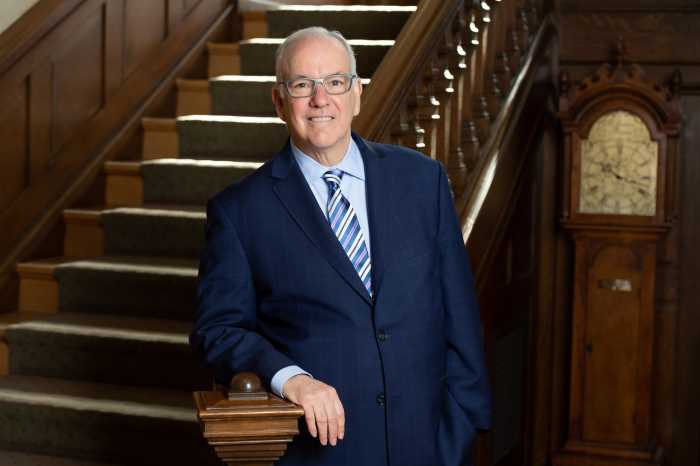
Jay S. Feldstein
President and CEO, Philadelphia College of Osteopathic Medicine

Dr. Feldstein’s oversight of PCOM includes over 3,000 students in osteopathic medical and other doctoral and graduate programs; 660 employees, community Healthcare Centers; and three campuses, its flagship in Philadelphia and two in Georgia. He manages annual revenues exceeding $170 million, leads strategic planning, and oversees the College’s accreditation. Dr. Feldstein has also prioritized diversity, equity, and inclusion and recently established a Community Wellness Initiative. He is the eighth president in PCOM’s nearly 125-year history.
What’s your favorite thing about working in health care?
This is the best job I’ve ever had, and that’s because of our students, who are the health care leaders of tomorrow. You can often find me on a bench outside of my office, interacting with students as they pass by. Our students go on to become proud PCOM alumni who are committed to caring for Pennsylvania and the nation. Nearly 5,600 DO alumni and 2,100 other health care professionals who graduated from PCOM serve in Pennsylvania.
What are the biggest issues facing the health care system in Philadelphia?
The biggest issue in health care locally and nationally is addressing various shortages in the health care workforce, especially as our country’s population ages and requires more medical care. We need more highly trained physicians, physician assistants, pharmacists, psychologists, physical therapists, and other allied health professionals to meet this need. In osteopathic medicine, we are committed to primary care, especially in underserved communities. PCOM operates community health care centers in Philadelphia to promote preventive medicine.
What does the future of health care in Philadelphia look like to you?
Continuing to address health inequities and social determinants of health will remain a priority for PCOM and Philadelphia’s other health care institutions. PCOM’s health equity efforts include the distribution of over 5,000 pounds of food to nearly 2,500 families since fall 2020 via our health care centers. Through our Community Wellness Initiative, we create educational and health services programming and resources that support and sustain the physical, mental, nutritional, and environmental wellness of our communities.
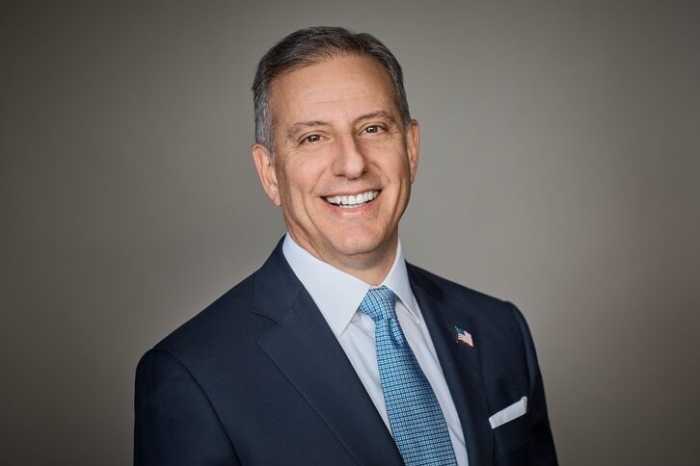
Stephen P. Fera
Executive Vice President of Public Affairs and Government Markets, Independence Blue Cross

Steve Fera is EVP of public affairs and government markets at Independence Blue Cross. Over his 30-year career at Independence, he has led multiple lines of business, advised top leaders in government, and championed health equity and public-private collaboration. Mr. Fera brings a community-oriented approach to his work at the intersection of health care, public policy, and social impact. He also has corporate responsibility for Independence’s nationally recognized and top ranked Medicare Advantage plans.
What’s your favorite thing about working in health care?
It makes a real and lasting impact on the lives of those we serve — often when they are most vulnerable. Being able to do that in the city where I was born, raised, and still reside in, helping my neighbors and community, motivates me every day. What’s more, I work alongside a team of talented, dedicated colleagues at Independence Blue Cross. I couldn’t ask for anything more rewarding.
What are the biggest issues facing the health care system in Philadelphia?
The integration of physical and mental health along with ensuring access to quality care no matter where you live. Independence Blue Cross is leading a number of initiatives to advance care integration and eliminate disparities. Your ZIP code should never predict how long you live. And we’re doing all of this work with providers, government, and the community.
What does the future of health care in Philadelphia look like to you?
Philadelphia has the unique potential to truly transform health care — not just in our city, but in our nation. We have many of the world’s best doctors and hospitals and no one beats us when it comes to innovation or collaboration. We must drive change together in order to create a system that improves care and reduces cost for every single citizen.

Marianne Fray
President and CEO, Maternity Care Coalition

Marianne Fray is president and CEO of Maternity Care Coalition. MCC’s mission is to improve the health and well-being of families, while enhancing school readiness for children ages 0-3. MCC’s comprehensive approach includes direct services, advocacy, and research and evaluation. Marianne earned her MBA from St. Joseph’s University, bachelors from Bryn Mawr College, is a certified association executive, and holds a certificate in nonprofit management and project management.
What’s your favorite thing about working in health care?
I feel privileged to work with such passionate people every day. Our staff is deeply rooted in the communities we serve, and hold lived experience around the issues we care about. MCC is sustained through longstanding, community-based partnerships with individuals and organizations in health care, and it is exhilarating to see the positive impact we can achieve together in our communities.
What are the biggest issues facing the health care system in Philadelphia?
Access to affordable housing, nutritious food, high-quality childcare, and a living wage all impact health outcomes. These social determinants of health transcend race, but have a greater impact on Black families and families living in poverty. Improvements outside of the health system are necessary. We must continue improving data tracking and working to build a comprehensive and equitable system of coordinated care. We believe that the individuals most impacted by a problem hold the solution.
What does the future of health care in Philadelphia look like to you?
We fight for equitable and accessible health coverage for pregnant people, reproductive health access, and paid parental leave. The increase in awareness of doula services, legislation to address the US maternal health crisis, and extended postpartum Medicaid coverage are strides towards a better future. We use a combined approach of direct service, advocacy, and research to create programs, like MCC’s evidence-based home visiting programs, where we bring supportive services to meet families where they are.
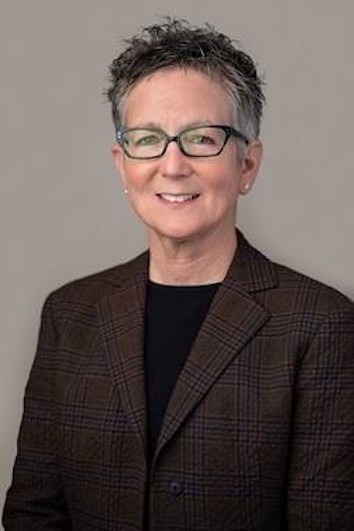
Amy Goldberg
The Marjorie Joy Katz Dean, Lewis Katz School of Medicine at Temple University

Amy J. Goldberg, MD, FACS is a nationally celebrated trauma surgeon, educator, and violence prevention innovator. She is the first woman to be named Dean of the Lewis Katz School of Medicine. Dr. Goldberg currently serves as vice chair of the American Board of Surgery. She has received numerous awards and designations as a physician and scholar, including The Philadelphia Award, recognizing extraordinary civic commitment and social responsibility.
What’s your favorite thing about working in health care?
This year marks my 30-year anniversary as a trauma surgeon at Temple. I am so grateful that I have been able to spend my career here, caring for patients and the North Philadelphia community.
What are the biggest issues facing the health care system in Philadelphia?
Many of Philadelphia’s residents and communities face formidable challenges that impact their health: employment, housing, education, childcare, transportation, nutrition. As health care leaders in this city, we have the ability and obligation to address these social determinants of health.
What does the future of health care in Philadelphia look like to you?
I see the future of health care every day in our students. As a leader in medical education, my priorities are educational excellence, innovation, and community impact. How we teach and train has to align with the evolving healthcare landscape. Enhancing clinical research and community access, more outpatient and home health, will help address health disparities and promote preventive care. I look forward to continuing our journey towards excellence and advancing the well-being of our communities.



